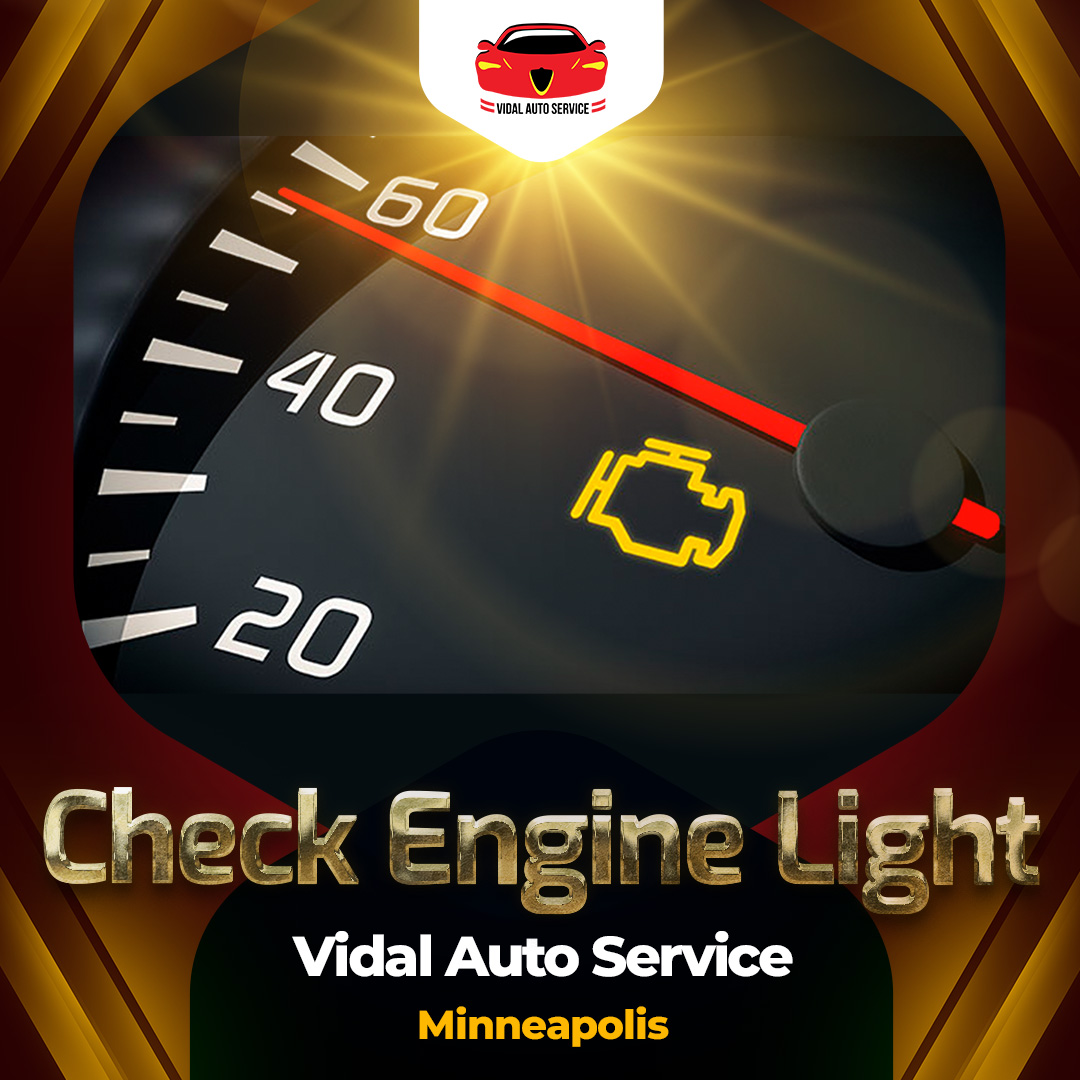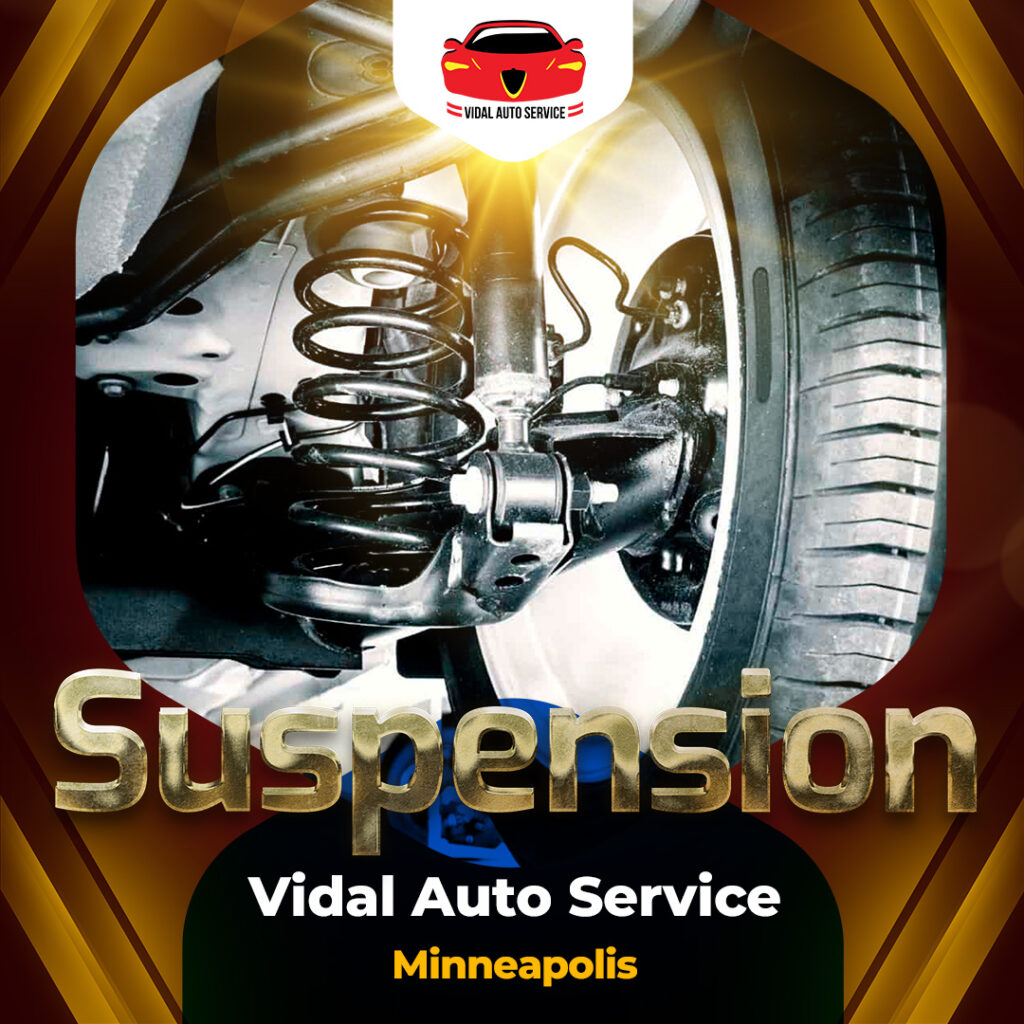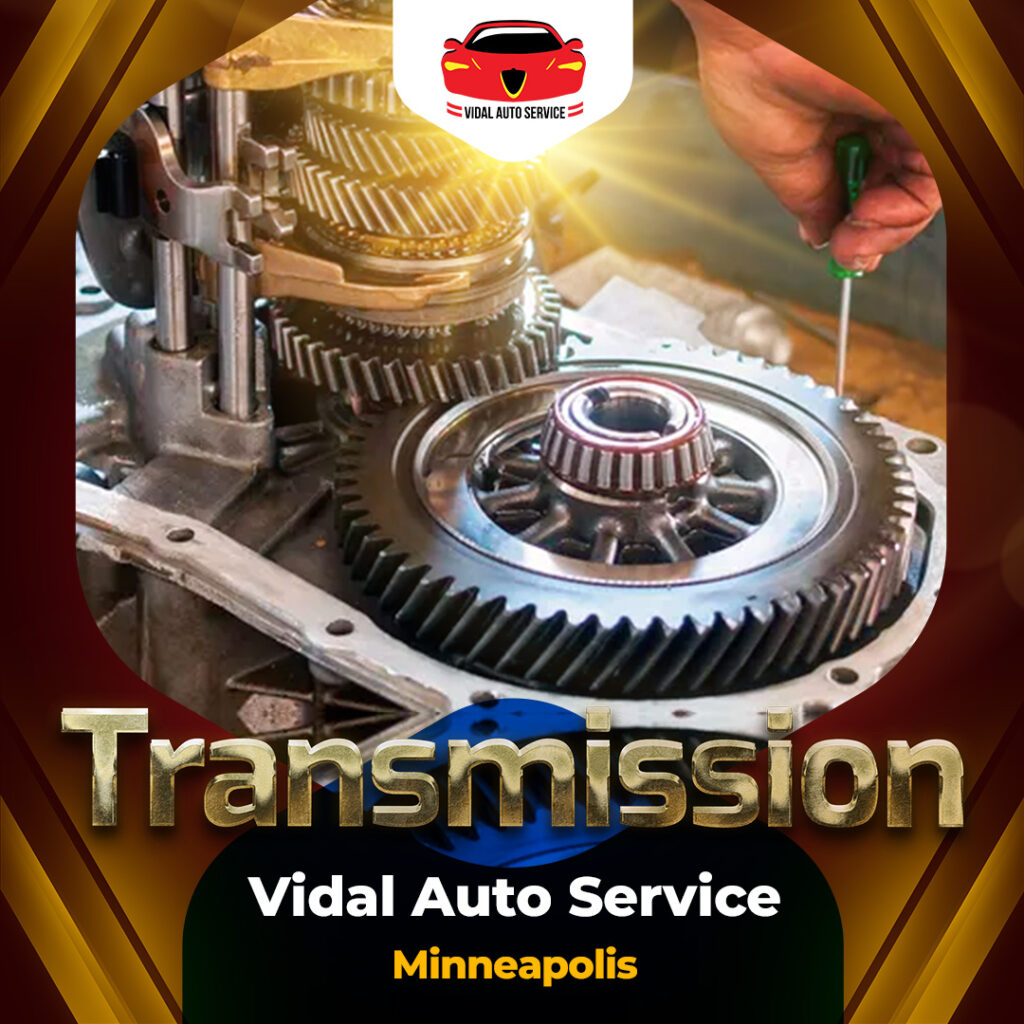Vidal Auto Service Minneapolis Presents You Our Service: Check Engine Light Service
Introduction
When your car’s check engine light turns on, it can be a nerve-wracking experience. But don’t worry! Vidal Auto Service in Minneapolis is here to help you understand and address any issues promptly. Our comprehensive Check Engine Light Service ensures your vehicle stays in top-notch condition, giving you peace of mind on the road.
What is a Check Engine Light?
The check engine light is part of your vehicle’s onboard diagnostics (OBD) system. It illuminates when the system detects an issue that may affect your car’s emissions, engine performance, or safety. The light can indicate a range of problems, from a loose gas cap to more serious engine issues.
Why Ignoring the Check Engine Light is Dangerous
Ignoring the check engine light can lead to severe consequences, including costly repairs and potential safety hazards. A minor issue can escalate into a significant problem if not addressed promptly, affecting your vehicle’s performance and longevity.
Common Reasons Your Check Engine Light Might Be On
Loose or Faulty Gas Cap
A loose gas cap can cause fuel vapors to leak, triggering the check engine light.
Oxygen Sensor Malfunction
The oxygen sensor measures the amount of unburned oxygen in your car’s exhaust. A malfunctioning sensor can lead to poor fuel efficiency and higher emissions.
Catalytic Converter Issues
The catalytic converter helps reduce harmful emissions. If it’s failing, your vehicle might emit unsafe levels of pollutants.
Mass Airflow Sensor Problems
The mass airflow sensor monitors the amount of air entering the engine. Issues with this sensor can affect your car’s performance and fuel economy.
Spark Plug or Ignition Coil Failures
Faulty spark plugs or ignition coils can cause engine misfires, leading to reduced power and efficiency.
How Vidal Auto Service Diagnoses Check Engine Light Issues
At Vidal Auto Service, we use advanced diagnostic tools and have a team of experienced technicians to accurately diagnose the cause of your check engine light. Our comprehensive inspection process ensures we identify and fix the problem efficiently.
The Diagnostic Process Explained
Initial Inspection and Code Reading
We start with an initial inspection and use specialized tools to read the diagnostic trouble codes (DTCs) stored in your vehicle’s computer.
Interpreting Diagnostic Trouble Codes (DTCs)
Our technicians interpret these codes to pinpoint the specific issue. Each DTC provides valuable information about what’s wrong with your vehicle.
Detailed Vehicle Analysis
After identifying the potential problems, we conduct a thorough analysis to confirm the diagnosis and determine the best course of action.
Common Repairs for Check Engine Light Issues
Gas Cap Replacement
A simple fix for a loose or damaged gas cap.
Oxygen Sensor Replacement
Replacing a faulty oxygen sensor to improve fuel efficiency and reduce emissions.
Catalytic Converter Repair or Replacement
Ensuring your catalytic converter is functioning correctly to comply with emission standards.
Mass Airflow Sensor Replacement
Fixing issues with the mass airflow sensor to enhance engine performance.
Spark Plug and Ignition Coil Replacement
Addressing misfires and improving engine efficiency by replacing worn spark plugs and ignition coils.
The Benefits of Regular Check Engine Light Service
Regular check engine light service offers numerous benefits, including improved vehicle performance, enhanced fuel efficiency, increased safety, and a prolonged vehicle lifespan.
Why Choose Vidal Auto Service?
Reputation and Experience
With years of experience and a solid reputation, Vidal Auto Service is a trusted name in Minneapolis.
Customer Testimonials
Our customers’ positive feedback reflects our commitment to quality and customer satisfaction.
State-of-the-Art Facility
We use the latest technology and equipment to provide top-notch service.
Commitment to Quality and Customer Satisfaction
Our priority is to ensure you receive the best service and drive away satisfied.
Customer Experience at Vidal Auto Service
Booking an Appointment
Easily schedule your service online or by phone.
Arrival and Initial Consultation
Our friendly staff will welcome you and discuss your vehicle’s issues.
Service and Repair Process
We keep you informed throughout the service and ensure your car is fixed right the first time.
Post-Service Follow-up
We follow up to make sure everything is running smoothly and answer any questions you might have.
Preventative Maintenance Tips
Regular Vehicle Inspections
Regular check-ups can catch issues early and prevent major problems.
Adhering to Maintenance Schedules
Following your vehicle’s maintenance schedule is crucial for its longevity and performance.
Tips for Keeping Your Check Engine Light Off
Proper maintenance, timely repairs, and regular inspections can help keep your check engine light off.
Understanding Diagnostic Trouble Codes (DTCs)
What Are DTCs?
DTCs are codes stored in your vehicle’s computer that indicate specific issues. They provide detailed information that helps technicians identify and fix problems quickly.
Conclusion
Regular check engine light service is essential for your vehicle’s health and performance. Don’t wait for a small issue to become a major problem. Schedule your service with Vidal Auto Service in Minneapolis today and drive with confidence!
FAQs
What should I do if my check engine light comes on? You should get your vehicle checked by a professional as soon as possible to diagnose and fix the issue.
How often should I get my vehicle checked for potential issues? Regular maintenance as per your vehicle’s manual is recommended, along with prompt checks if the check engine light comes on.
Can I drive with the check engine light on? It’s best to avoid driving and get your vehicle inspected immediately to prevent further damage.
What if the check engine light is flashing? A flashing check engine light indicates a severe issue that requires immediate attention. Pull over safely and contact a professional.
How long does a diagnostic test take? Typically, a diagnostic test takes about an hour, but it can vary based on the complexity of the issue.








